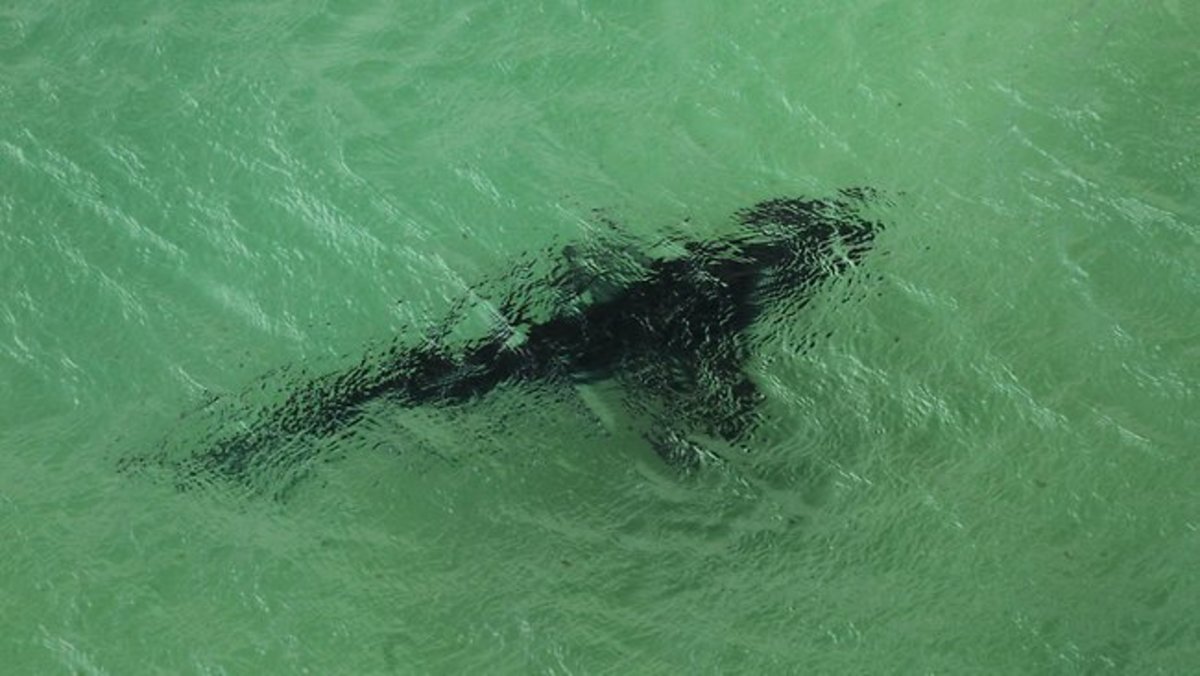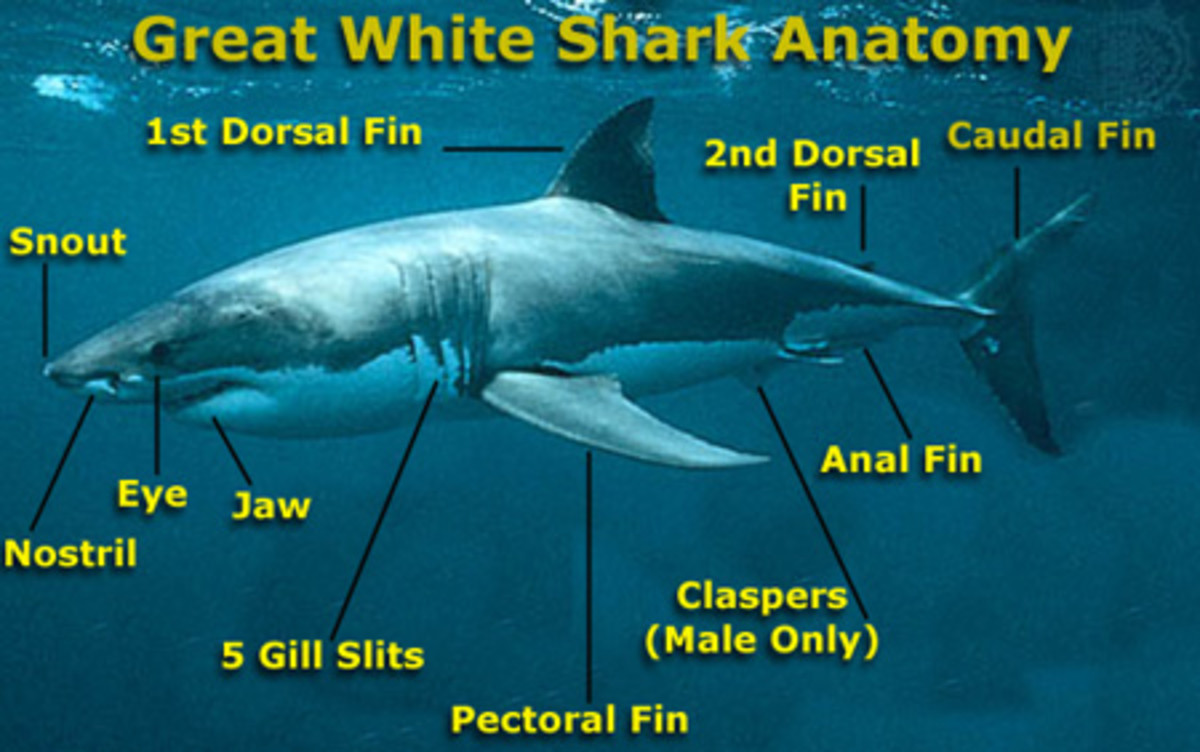- HubPages»
- Education and Science»
- Life Sciences»
- Marine Biology»
- Marine Life
Tips to Prevent a Shark Attack

Before 1916, shark attacks were rarely reported. In fact, many people did not consider sharks to be dangerous. Since 1916, hundreds of shark attacks have been reported and many of the attacks have proven fatal. Florida has the highest number of shark attack reports, with a total of 295 and rising since 2001. Hawaii has had 65 reported cases between 2001 - 2013.
According to the Florida Program for Shark Research, there are three main reasons way shark attacks are on the rise. One of these reasons is due to an increase is shark populations, which is a good sign to the overall health of the ocean's ecosystem. Another reason is because more people are choosing to head to the beach for some rest and relaxation. In fact, about 200 million people head to a US beach for a vacation, therefore, more people are getting in the water. The third reason is due to climate change and warmer waters.
Although biologists are still learning about various patterns with sharks, there are still more studies that must be done. With the increase in shark attacks, for whatever the reason, people need to be more aware of what is in the water with them. There are some tips to keep in mind that may help deter a shark attack.
Reported Shark Attacks in the United States (2009-2013)
Year
| Total
| Fatal
|
|---|---|---|
2009
| 29
| 0
|
2010
| 38
| 2
|
2011
| 31
| 0
|
2012
| 53
| 1
|
2013
| 47
| 1
|
Time of Day
Knowing when not to go swimming will help reduce the risk of being attacked. Many sharks, especially Great White and Bull sharks, hunt during early morning hours and at sunset. The reasoning behind this is nocturnal creatures begin to find their hiding place while the day creatures begin to come out of theirs. The same concept applies at dusk because diurnal creatures begin to find hiding places while nocturnal creatures begin to emerge. This causes a wide range of prey available to the sharks. The full moon brings high tide which brings more life throughout the shallow waters.
Many sharks hunt at night, so think twice before going for that night swim. Great Whites are known to hunt at all hours so be alert at all times.
Minimize Splashing
Sharks have amazing senses. The can pick up splashing from quite a distance away. Many times the shark interprets the splashing as an injured fish and a potential meal. Heavy splashing may even cause the shark to confuse you for a seal.
Avoid Fishing Areas
Swimming close to where people are fishing places you in a greater risk of being attacked. One of a shark's senses that is heightened is their sense of smell. A shark can detect a drop of blood, whether it is fish blood or animal blood, in a billion gallons of water. Therefore a hooked or speared fish can cause a shark feeding frenzy. Even the smell of bait can attract sharks.
Colors and Designs
Although it is believed that sharks are color blind, recent studies show that sharks may be attracted to certain colors and that wet suit designs may help deter sharks. Les Stroud, a survival expert, tested the theory that Great White sharks are attracted to certain colors. These sharks showed no interest at all in a mannequin wearing black. When he placed a mannequin in the water wearing red, they showed a mild interest but didn't attack. The mannequin wearing yellow not only created extreme interest, but was attacked. Stroud suggests wearing black when in the water.
Australia has the most reported fatal shark attacks in the world. Professor Shaun Collins, Professor Nathan Hart, and their team of researchers of the University of Western Australia believe that utilizing contrasting designs on wetsuit will help prevent sharks from attacking so that the swimmer won't be mistaken for something naturally occurring in the water. They also believe that wetsuit that allow swimmers to blend in with the background of the ocean will also help deter shark attacks due to the belief that the shark won't be able to see the swimmer as easily.
Beware of Shiny Things
Sharks are attracted to shiny reflective objects. Wearing jewelry or swimsuits with reflective features tend to attract their attention. Many of the fish have scales that reflect the sunlight. Sharks may confuse your shiny object with a tantalizing fish.

Don't Swim Alone
Swimming with a partner or group leaves you less vulnerable. This could make all the difference in the world when it comes to shark attacks. If you do get attacked, you can count on massive blood loss. The other people in your group can help intimidate the shark to release you as well as be there to help you get to shore.
Don't Swim With Animals
Sharks love to feed on small animals such as seals and sea lions. They are even known to eat birds that land on the surface of the water. Swimming with your family pet places you and your pet at risk of being attacked.
Avoid Murky Water
Sharks are skilled hunters. The murky waters don't hamper their senses, but it does hamper ours. Even the murky waters of inlets and rivers have been known to have Bull sharks and even the occasional Great White. Only swim in clear water. This allows you to see your surroundings with more clarity.
Stay Close to Shore
Sharks like to feed in shallow waters. Some beach goers tend to swim unknowingly too far from shore. This could mean disaster for an unsuspecting swimmer. Stay aware of your distance from the beach and if possible, stay close to the lifeguard.
Although these tips are mere guidelines, sharks can attack for any number of reasons. These tips make an attack less likely. Before entering the water, it is also a good idea to check Global Lifeguards website to find out the oceanic safety conditions for your area.
© 2014 L. Sarhan








